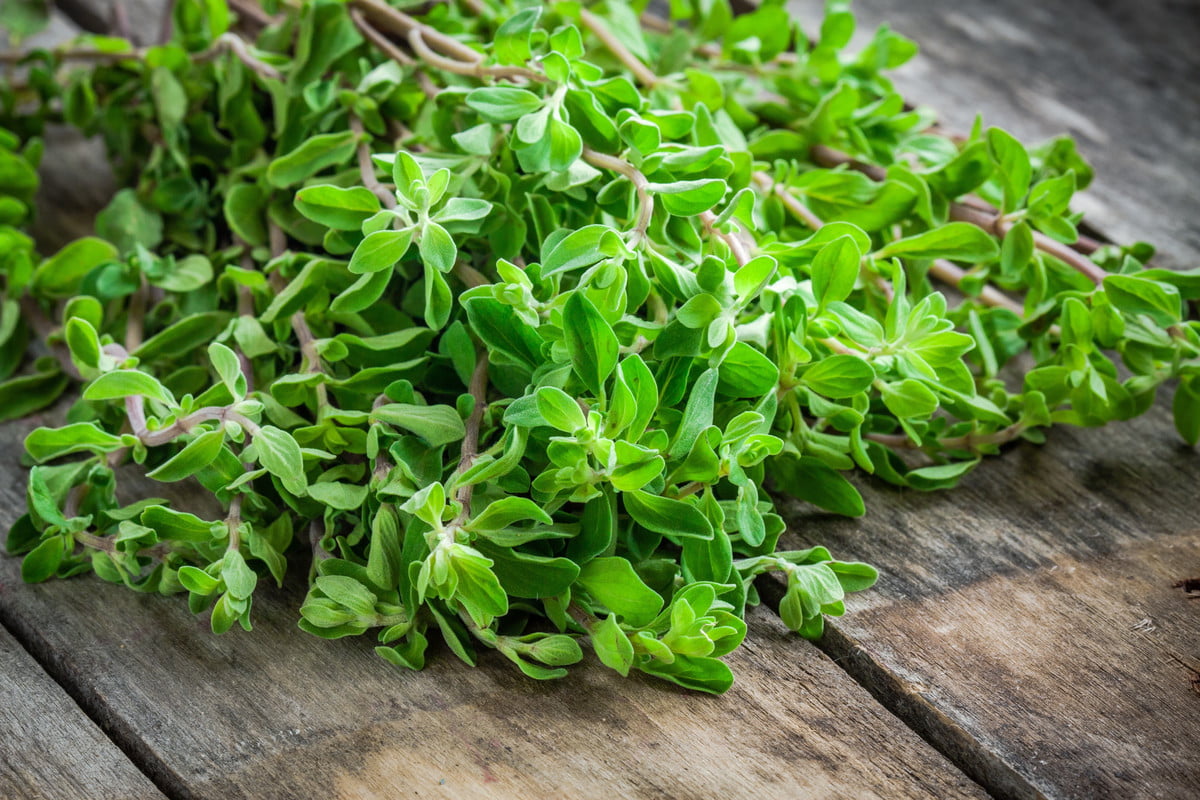Marjoram, also known as Origanum majorana, is an aromatic herb that belongs to the mint family. It is native to the Mediterranean region and has been used for centuries for culinary and medicinal purposes. In this comprehensive guide, we will explore what marjoram is, its potential health benefits, any side effects associated with its use, and various ways to incorporate it into your daily life.
Overview of Marjoram:
Marjoram is a perennial herb with small, ovate leaves and tiny white or pink flowers. It has a delicate and sweet aroma with hints of citrus and pine. The leaves of marjoram are typically used fresh or dried to add flavor to a wide range of dishes, including soups, stews, sauces, and marinades. It is often used as a substitute for oregano due to its similar taste profile.
Nutritional Composition:
Marjoram is rich in essential nutrients, including vitamins, minerals, and antioxidants. It contains vitamins A, C, and K, as well as minerals like calcium, iron, and potassium. Additionally, marjoram is a good source of dietary fiber and contains beneficial plant compounds such as rosmarinic acid, which has antioxidant and anti-inflammatory properties.
Potential Health Benefits:
a. Digestive Health: Marjoram has been traditionally used to support digestion and alleviate digestive issues such as bloating, gas, and indigestion. It may help stimulate the production of digestive enzymes and promote healthy gut function.
b. Anti-Inflammatory Effects: The rosmarinic acid in marjoram has been shown to possess anti-inflammatory properties. It may help reduce inflammation in the body and potentially alleviate symptoms of inflammatory conditions such as arthritis.
c. Antimicrobial Activity: Marjoram exhibits antimicrobial properties and may help inhibit the growth of certain bacteria and fungi. This property may contribute to its traditional use in preventing infections and promoting oral health.
d. Respiratory Support: Marjoram is known for its expectorant properties, which may help relieve coughs and congestion. It can be used in teas or as an ingredient in steam inhalations to promote respiratory health.
e. Stress Relief: The aromatic compounds in marjoram have a calming effect on the nervous system and may help reduce stress and anxiety. It can be used in aromatherapy or added to bathwater for relaxation purposes.
Possible Side Effects and Precautions:
Marjoram is generally safe for consumption when used in moderate amounts as a culinary herb. However, some individuals may experience allergic reactions to marjoram. If you have known allergies to other plants in the mint family, it is advisable to exercise caution when using marjoram. Additionally, pregnant and breastfeeding women should consult their healthcare provider before using marjoram in medicinal amounts.
Culinary Uses:
Marjoram adds a pleasant and aromatic flavor to a variety of dishes. It pairs well with meats, poultry, fish, vegetables, and legumes. It can be used fresh or dried, and the flavor intensifies when dried. Marjoram can be added to soups, stews, sauces, dressings, and marinades. It also complements tomato-based dishes, roasted vegetables, and herb-infused oils. In Mediterranean cuisine, marjoram is often used in herb blends like Herbes de Provence.
Other Uses:
Apart from culinary applications, marjoram has been used in traditional medicine for its potential health benefits. It can be brewed into a tea by steeping fresh or dried marjoram leaves in hot water. Marjoram essential oil, obtained from steam distillation of the herb, is used in aromatherapy and topically for its soothing properties.
In conclusion, marjoram is a versatile herb with a delightful aroma and potential health benefits. It can be used to enhance the flavor of various dishes and has traditionally been associated with digestive, anti-inflammatory, and antimicrobial properties. While marjoram is generally safe for culinary use, it’s important to be aware of potential allergies and consult with a healthcare provider if you have any concerns or if you plan to use marjoram medicinally. Enjoy the flavorful and aromatic benefits of marjoram in your culinary creations and explore its potential therapeutic uses with caution and moderation.
- CBD Oil By 43cbd-Comprehensive Review Unveiling the Best CBD Oil - March 11, 2024
- The Comprehensive Guide to the Benefits of Turkey Tail Functional Mushrooms - October 28, 2023
- Smilyn Wellness Introduces New Delta-10 Vape Carts: A Comprehensive Guide - October 28, 2023

